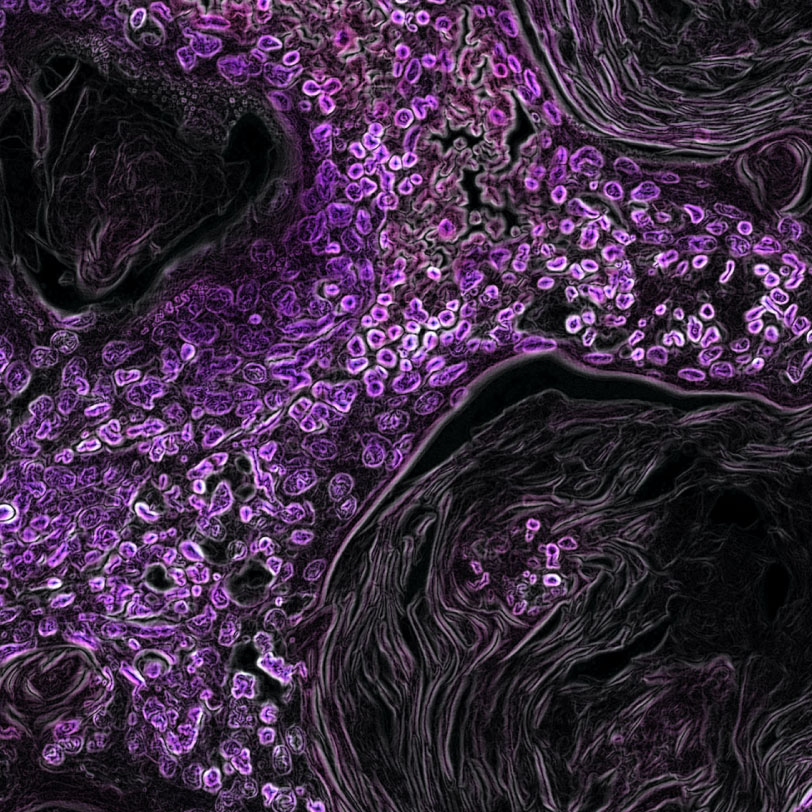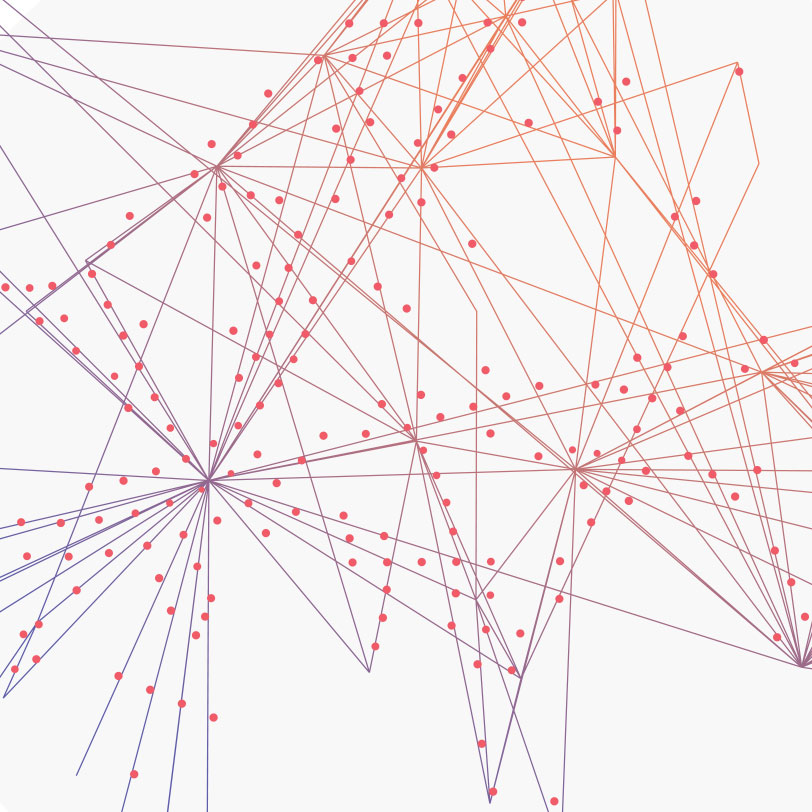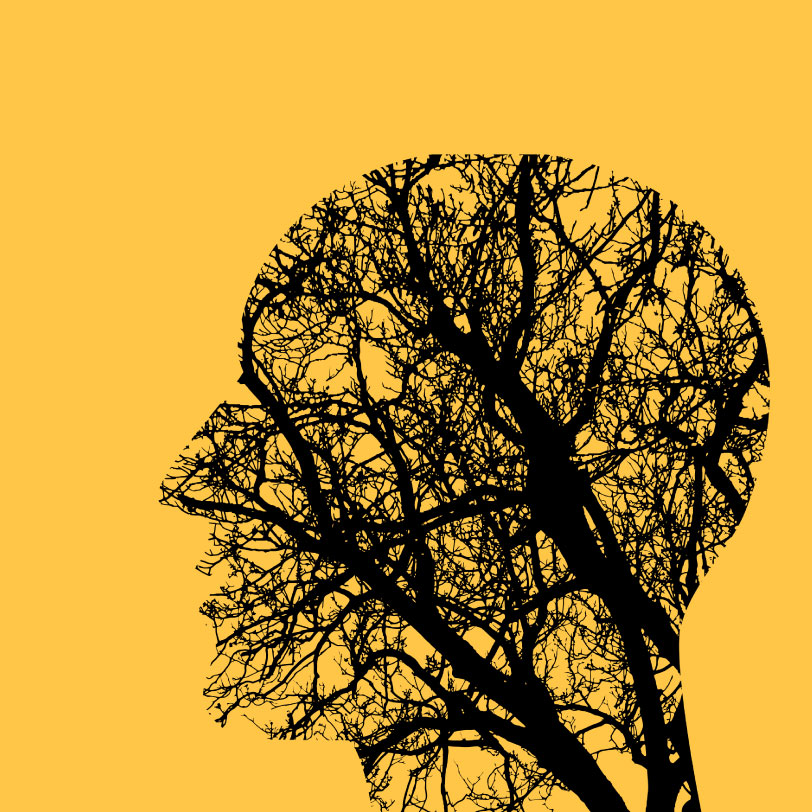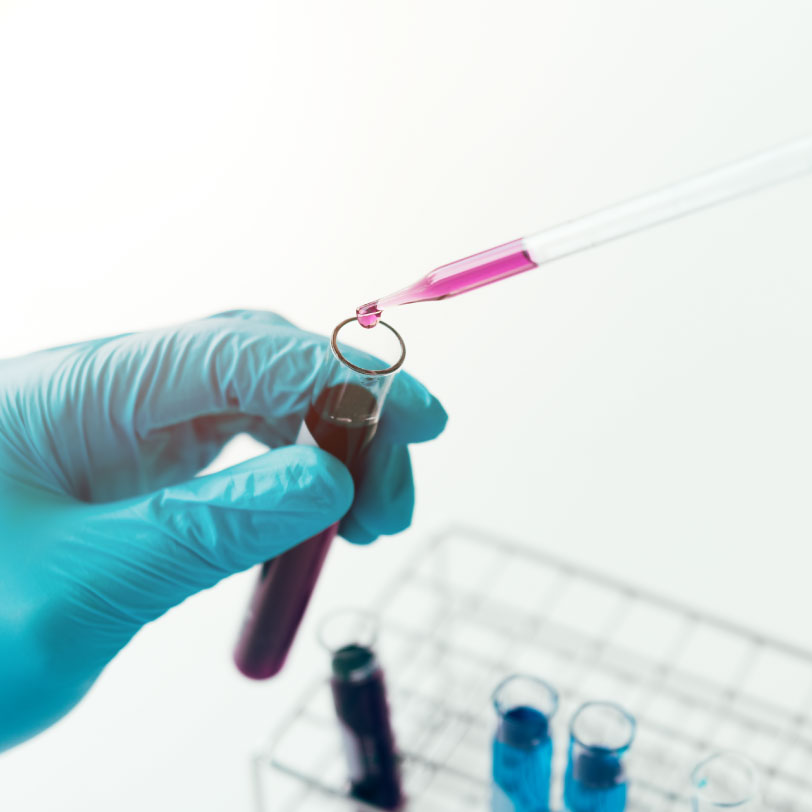EXPANDING SALK SCIENCE
Building Excellence
Salk’s six Centers of Excellence, a focus of the Campaign for Discovery, are uniquely poised to address the world’s greatest challenges with the best people—top experts in their fields—and leading-edge technologies in computational biology, machine learning, artificial intelligence and more.
The Campaign for Discovery will focus on six Centers of Excellence: Center for Healthy Aging, Cancer Center, Hess Center for Plant Science, Crick-Jacobs Center for Theoretical and Computational Biology, Center of Excellence for Neuroscience, and NOMIS Center for Immunobiology and Microbial Pathogenesis.
As it has always been at Salk, there will be no barriers between disciplines. New ideas from multiple areas mix and flourish, generating the most innovative, multipronged approaches to creating a healthier world.
OUR CENTERS OF EXCELLENCE

CENTER FOR
HEALTHY AGING
Embracing complexity to reveal the secrets to healthy aging.
Historically, aging research and clinical care have been approached with tunnel vision, each discipline addressing scientific questions or treating age-related diseases in a silo. At Salk, we bring together all-star teams of experts from different research areas to form collaborative groups that tackle common problems. We are moving beyond the conventional wisdom of approaching diseases individually to instead develop personalized interventions that increase resilience and reduce susceptibility to multiple age-related diseases simultaneously.

NATIONAL CANCER INSTITUTE-DESIGNATED CANCER CENTER
Exploiting Cancer’s Vulnerabilities
Salk scientists look at cancer holistically by focusing not only on the tumor cells themselves, but also on their surrounding tissues, the immune system, the microbes that live within us, and how each individual’s environment and habits influence their risk and therapeutic responses. These are the elements that, together, allow tumors to form, grow, spread, and resist standard therapies. With this holistic approach, we are revealing new universal vulnerabilities that could be targeted with innovative, customized therapeutic tools that may apply to many cancers, including pancreatic, brain, lung, and breast.

HESS CENTER FOR PLANT SCIENCE
Optimizing Plants to Help Save the Planet
Global climate change is here. In the face of a crisis, we cannot simply maintain the status quo. Salk scientists are leveraging the Institute’s long history of pioneering discoveries in genetics, epigenetics, plant sciences, and computational biology to develop Salk Ideal Plants®. These plants are a new generation of food crops that improve soil health; thrive in hotter, drier, and less-than-hospitable environments; and help mitigate climate change by capturing excess carbon from the atmosphere and storing it deep in their roots.

CRICK-JACOBS CENTER FOR THEORETICAL AND COMPUTATIONAL BIOLOGY
Using Computation and Engineering to Solve Biology’s Biggest Challenges
When scientists use machine learning and other powerful computational approaches, it is like they are putting on a new, more powerful set of reading glasses: information that was once fuzzy is now crystal clear, and patterns that have evaded our detection emerge from the background. Salk has long been a leader in this field, but we are now taking these efforts further by adding new technologies and expertise. The beauty of these approaches is that they can be applied to any type of research: cancer, immunobiology, neuroscience, aging, plant biology, and more. Better computation lifts all boats.

CENTER OF EXCELLENCE FOR NEUROSCIENCE
Adapting our Brains to Fit Today’s World
Our brains manage to cope amazingly well with the many stresses we experience every day—most of the time. However, eventually, age and relentless overload exceed the brain’s ability to cope. What determines the tipping point between coping and crisis? Salk scientists are studying how some brains adapt well, and others do not. In one example, a team is exploring the roles social interaction and isolation play in our mental and physical health. Answers to these questions may ultimately pave the way for new methods to prevent or treat anxiety, depression, and other mental health conditions.

NOMIS CENTER FOR IMMUNOBIOLOGY AND MICROBIAL PATHOGENESIS
Balancing Inflammation
As important as the immune system is for protecting us from pathogens and other dangers, it can be a double-edged sword. Immune cells can destroy cancer or help it thrive; they can defeat pathogens or generate dangerous autoimmune responses. Chronic inflammation is the root of many diseases, including cancer, heart disease, type 2 diabetes, obesity, and neurodegenerative diseases. Salk scientists are deciphering the complex interplay of molecules, signals, and cells to determine what tips immune function from helpful to harmful—and how to tip the scale back to preserve health.